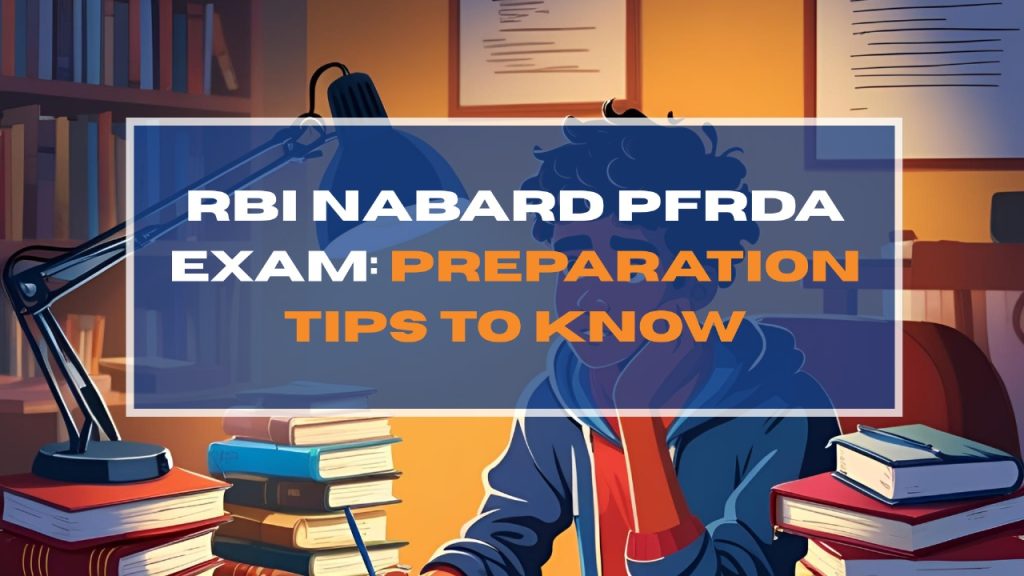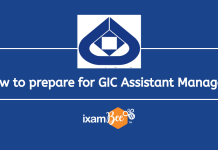So, you’ve looked towards RBI NABARD PFRDA Exam? Excellent choice! These aren’t mere jobs; they’re careers that matter. These organizations frame India’s economy. They have several functions that range from designing policies to charting growth and providing some of India’s most sought-after government posts. But the fact remains that the competition is quite intense. The syllabus is even more extensive, and the road to your success in these exams? It’s equally challenging. still, with a proper plan, you can crack it. Let’s delve into understanding how to prepare for these RBI NABARD PFRDA Exam, step by step.

1. Understand the Nature of Each Exam
All three exams—RBI Grade B, NABARD Grade A, and PFRDA Grade A—share similarities. But they also examine different areas of knowledge. RBI Grade B deals with economic concepts, finance, management, and general awareness. NABARD Grade A deals with agriculture, rural development, and environment. PFRDA Grade A deals with finance, pensions, markets, and regulatory frameworks. So first things first:
- Know what you’re getting into.
- Read previous years’ question papers.
- Read official notifications.
- Syllabus-wise checklist
2. Current Affairs: Make It a Daily Habit
Every exam has current affairs questions. Not only headlines—deep context is important. Read everything from the Union Budget, Economic Survey and Government schemes to Reports by RBI, NABARD, SEBI, and PFRDA. Read about new appointments and latest banking news. Gather intel about international summits, awards and sports as well.
Spend at least one hour daily on a newspaper like The Hindu or Indian Express and make it a point to read monthly magazines. In addition to this, you can also make use of platforms like BeePedia and make notes on them. Finally revise and test yourself regularly.
3. Master the Static & Conceptual Part
Now this is where most students go wrong. They either neglect theory or study only theory. You require balance.
For RBI:
- Indian Economy by Ramesh Singh
- Monetary policy, inflation, fiscal policy
- Financial markets, budget, taxation
For NABARD:
- Agriculture schemes and rural infrastructure
- Reports from Ministry of Agriculture
- Climate change, soil health, cropping patterns
For PFRDA:
- Pension system in India
- NPS and Atal Pension Yojana
- Regulatory bodies like SEBI, IRDAI, PFRDA
- Each subject needs a conceptual base.
4. Descriptive English: Don’t Take It Lightly
All three exams test your writing skills. And trust me, this part is make-or-break. It’s not just about grammar. It’s about structure, logic, and clarity. Here are some tips for that:
- Practice 2 essays every week.
- Time yourself.
- Get feedback from mentors or peers.
- Read editorials.
- Learn to express more in fewer words.
- Start early and polish your skills as you go
5. Mock Tests: The Mirror You Need
Mock tests are not solely for practice. They’re instruments to create accuracy, speed, and exam temperament. Here’s how you can use mock tests for RBI Grade B, NABARD Grade A and PFRDA Grade A well:
- Begin with one mock per week.
- Gradually increase frequency as the exam nears.
- Inspect your performance.
- Analyse your time management
- Find out which section was tough for you
- Correct it and then repeat
- Convert your weak spots into strong ones.
6. Create a Smart Study Schedule
Random studying doesn’t work. You need structure. Here’s a sample strategy:
- Morning (7 AM – 9 AM): Quant or Reasoning
- Midday (12 PM – 2 PM): Current Affairs + Reading
- Evening (6 PM – 8 PM): ESI, ARD, or Finance
- Night (9 PM – 10 PM): Essay practice or Revision
- Make weekends count.
Use them for full mocks, group discussions, and revision. Be flexible but disciplined.
7. Books & Resources: Quality Over Quantity
Too many books will leave you confused. Choose the right ones and stick to them. Here’s a starter list:
- Ramesh Singh’s Indian Economy
- NCERTs (Class 11–12) for foundations
- Kurukshetra and Yojana magazines
- Economic Survey & Union Budget
- Reports from SEBI, RBI, NABARD, PFRDA
- ixamBee’s RBI NABARD PFRDA Combo Online Course
Don’t forget that one good book is preferable to five unused ones.
8. Remain Mentally Strong and Inspired
It’s a long march and I’m sure there will be ups and downs. There are going to be days when you are stuck and just want to quit. Don’t. Instead take a break, and breathe slowly. Remind yourself why you began. Your target is strong. You’re going for RBI, NABARD, or PFRDA .Not everyone has the guts to dream this big. So just hold on. Have faith in your prep. Trust the process.
Summing Up
You don’t have to be a genius to clear these exams. You need a plan and some discipline. And you need a burning desire to pass. Be inquisitive. Be regular. Be positive. Each study hour counts. Each practice test sharpens you. You’ll one day step into RBI, NABARD, or PFRDA. And smile, knowing it was all worthwhile.
ixamBee specializes in providing expert guidance and resources for banking exams 2025, ensuring that you are well-prepared for the upcoming bank exams like RBI Grade B, NABARD Grade B, IBPS SO, and more. Our courses align with the bank exam calendar 2024, covering all the essential topics. With a focus on the upcoming bank jobs, our Previous Year Papers, BeePedia, SSC CGL, SSC CHSL, SSC MTS, and other Mock Tests are designed to help you excel in upcoming banking exams.
Also Read:
Combined Preparation Tips for SEBI, NABARD and RBI Exams
RBI Grade A/B Exam 2025: Know More About Monetary Policy Meeting
Tips and Tricks to Help You Prepare for the IBPS SO Law Exam 2025













